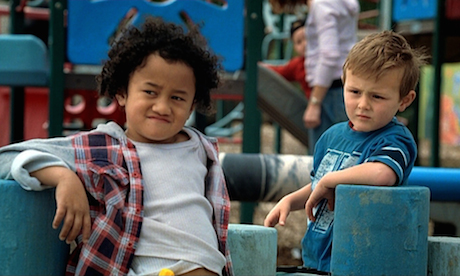What makes a male child become a “boy,” as we understand that concept socially?
In her new book, When Boys Become Boys, Judy Y. Chu reports on her two-year study in which she followed a group of boys from pre-kindergarten through first grade.
She concluded that most of what we think of as “boy” behaviour isn’t natural or authentic to boys, but is something they learn to perform.
Boys aren’t stoic or aggressive or hierarchical; they aren’t bad at forming relationships or unable to express themselves.
They pick up all these traditional traits of masculinity by adapting to a culture that expects and demands that they do so.
I interviewed Chu about gender roles, relationships, and how boys become boys.
The primary cultural forces you discuss in your book seems to be the boys themselves and their peer group. So it seems like they become boys through learning from other boys; it’s boys teaching themselves to be boys. So where do you see the inauthenticity or unnaturalness there?
It’s not as though they’re arriving in their interactions having come from an isolated place.
They’re hearing messages from older siblings, from media, or some of the boys’ parents were more conventional in terms of the messages that they were telling them.
So they were hearing messages about masculinity and bringing them to their peer group context. Continue reading.
Source: The Atlantic
Image: Exposure
Additional readingNews category: Features.




